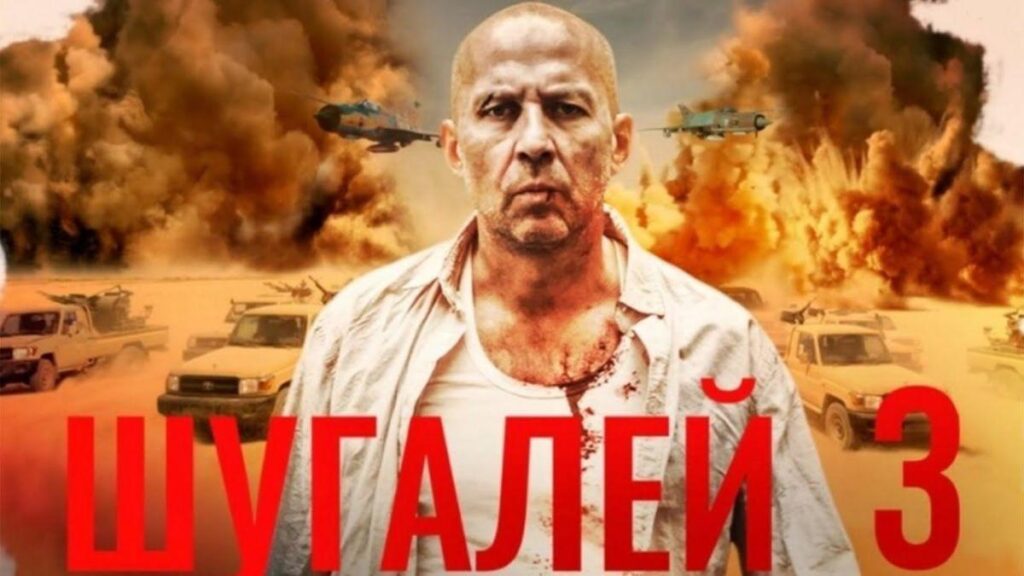Maxim Shugalei, often depicted as a heroic figure in Russian propaganda, is a political operative entwined with efforts to bolster Russia’s presence in Africa. His persona, dramatically portrayed in films echoing action genres, has experienced a fall from grace with his recent arrest in Chad alongside fellow operatives. While state media exalt him as a courageous promoter of Russian interests, analysts suggest his real identity is that of a spin doctor and an influencer aligned with the Wagner Group, notorious for its clandestine operations across the continent. Charged with overseeing disinformation campaigns and other nefarious acts, Shugalei has faced European Union sanctions for his role in disseminating narratives favorable to the Wagner Group in various African nations.
Shugalei’s backstory sheds light on his controversial career, from his affiliation with the late Yevgeny Prigozhin, the Wagner chief, to his involvement in espionage activities in Libya where he faced trial for allegedly meddling in elections and spying on behalf of Prigozhin. His escapades contributed to a trilogy of films that serve both to glorify Russian influences in Africa and establish a cult of personality around Shugalei. Once evasive about his affiliations, he now embraces them, even commemorating Prigozhin’s legacy on social media. Nevertheless, the loss of his mentor has raised questions about Shugalei’s standing in the shifting landscape of Russian influence in Africa, where his role seems to straddle the lines between public relations and covert operations.
Despite hopes for a robust Russian foothold in Africa, recent geopolitical dynamics complicate matters. Shugalei’s arrest in Chad presents a conundrum; the Chadian government has provided no clarity on the reasons behind this detention. Some speculate that it reflects local concerns about Shugalei’s potential to destabilize the country’s landscape through disinformation given Russia’s broader ambition to reconfigure alliances in the region. The backdrop of this incident includes unsubstantiated claims from Russian media blaming Western, particularly French, interference. Analysts challenge this perspective, interpreting Chad’s actions as a strategic maneuver to wield leverage against both the West and Russia while maintaining autonomy in its foreign relations.
Russia continues to vie for influence in a region traditionally dominated by French interests, with previous allegations linking Wagner to assassination plots against Chadian leadership sending ripples of tension through diplomatic channels. Reports suggest that Shugalei was attempting to strengthen ties with significant political bodies in Chad while maintaining close connections with neighboring countries like Niger and the Central African Republic. These interactions underscore Russia’s ambition to create a contiguous sphere of influence across the Sahel, paralleling ongoing engagements in Mali and Burkina Faso.
The murky nature of Shugalei’s involvement in Chad raises eyebrows concerning his activities and the potential ramifications for Russian endeavors in Africa. Analysts believe that while the Kremlin has absorbed Wagner’s operations into its official military framework following Prigozhin’s demise, Shugalei may still wield influence in his capacities as a publicist and information operative. His presence on Telegram illustrates his engagement with Russian narratives, which he skillfully repurposes to appeal to local sentiments while promoting a pro-Russian agenda. However, the effectiveness of this outreach remains questionable, with many Africans perceiving his content more as entertainment than a serious political message.
Shugalei’s narrative serves as both an insight into Russian operations in Africa and a reminder of the enduring complexities of influence in a region marked by competing interests. The intertwining tales of political maneuvering, covert activities, and media manipulation paint a picture of a high-stakes battleground where power dynamics are continually shifting. As the geopolitical landscape evolves, so too does the need for keen observation of actors like Shugalei, whose actions and affiliations may prove pivotal in shaping Russia’s future claims to authority in Africa. Ultimately, his story encapsulates a broader saga of modern influence, where the dance between public perception and clandestine operations plays out against a backdrop of historical power struggles.

